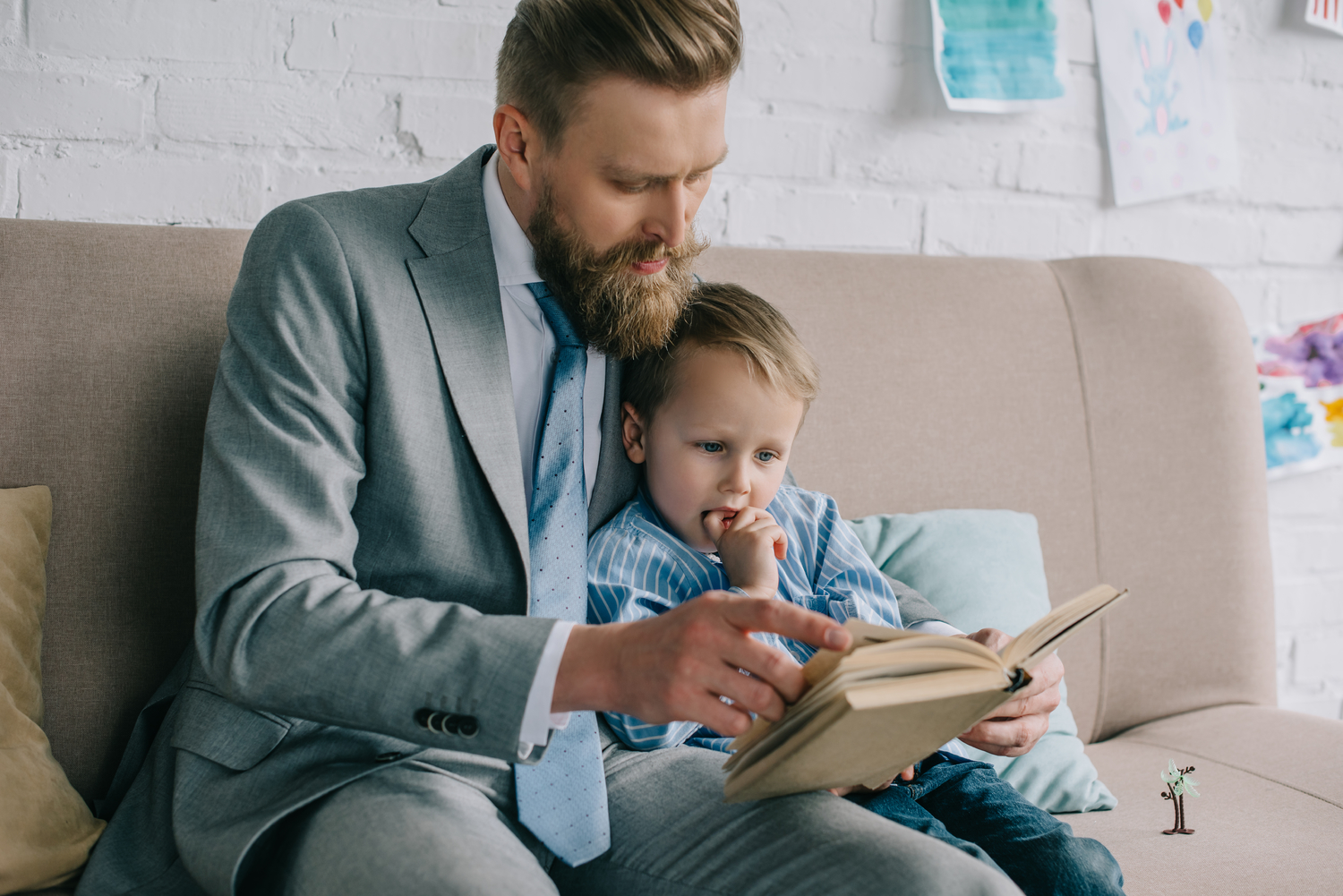你更喜欢公狗还是母狗? | “性别偏见”对汪星人的影响
人们对狗狗的性别偏见,对人宠关系有何影响?
壹心理翻译社 ◎ 荣誉出品
原作 | Paul McGreevy, Fiona Probyn-Rapsey
翻译 | 魏琦梦
校编 | 搬那度
注:为方便具有英文阅读习惯和需求的读者,我们在译文发表的同时,附上了英文原文。在部分译文的处理上,我们进行了二次编辑,以求更接地气、更容易理解的表达,因此并非所有译文都和英文原文100%对应。原文链接可在文末找到,提醒有需要的读者留意。
The relationship between people and their dogs can be a lasting and loving bond if the match is right. But when acquiring a dog, how do you know if that match will be a good one?
只有主人和狗狗互相适合,人类和汪星人的关系才会长久、充满爱。那么,选择新狗狗的时候,怎么才能知道自己和那个它合不合适呢?
Research shows there is a difference in the way some dogs react to men and women, and it can also matter if the dog is a he or a she.
研究表明,狗狗对待男人和女人的方式是有所不同的,而公汪和母汪对待人的方式有时也会不同。
The challenge lies in understanding the interactions of dogs with humans. And part of that challenge can be influenced by gender stereotypes of both humans and dogs.
性别为什么会影响人狗之间的互动呢?人类对这一点的理解尚未透彻;更糟的是,我们对于人和狗的性别成见,都会在一定程度上妨碍我们形成正确的理解。
This shows why matching dogs to people is far more complicated than we might predict.
所以,给铲屎官和汪星人牵线,比我们想象中困难得多。

Humans & Dogs: a Long History
人类和汪星人:悠久的友谊
Humans have been co-evolving with dogs for thousands of years. We owe them a lot, including (perhaps surprisingly) the ways in which we experience and express gender via animals.
几千年来,人类都在和汪星人一起成长,一起进化。它们,乃至广大的动物团体,都对人类的思想文化影响很大。
比如说,我们会通过动物来体会和表达自己对性别的理解(这一点也许会让一些人感到惊讶)。
This often happens in negative ways, such as when women are referred to as bitches, cows, pigs, birds, chicks and men as wolves, pigs, rats. None of these animal metaphors have much to do with the animals themselves but more to do with how we use categories of animals to categorise humans.
但是,这方面的理解经常带有歧视意味。举个例子:中国人可能会用 “蛇蝎心肠” 来形容女人,用 “狼心狗肺” 来形容男人。而歪果仁也一样:他们有时候会把女人称为母狗、牛、猪、鸟、小鸡,把男人称作狼、猪、鼠……

鸡犬们纷纷表示冤枉!
当然,这些动物的名字成为歧视性比喻,和动物本身并没有多大关系。我们使用这类称呼,其实是在用我们对动物的成见对人进行分类。
So unpacking and challenging gender stereotypes might just also improve the lives of animals too.
因此,卸下性别成见的枷锁,不仅能帮到人类,或许还能帮助动物们过上更好的生活。
A 2006 landmark analysis of gender and dog ownership revealed that owners use their dogs as props to display their own gender identities.
一项 2006 年澳大利亚的里程碑式研究发现,养犬者会把狗狗当成道具,并利用它们来展示自己的性别身份。

Participants in this study considered female dogs to be less aggressive but more moody than apparently more playful male dogs. They used gender stereotypes not only to select dogs, but also to describe and predict their dog's behaviour and personality.
这项研究的参与者认为,母狗攻击性较低、比公狗更情绪化,而公狗则比母狗更贪玩。此外,参与者在选择宠物狗以及描述和预测狗狗的行为和性格时,都会受到性别成见的影响。
The potential ramifications of this are important because such flawed predictions about dog behaviour can lead to a person giving up on their dog, which is then surrendered to a shelter.
但是,性别成见可能会给狗狗带来严重后果:如果狗主人出于成见而错误地预测狗狗的行为,狗主人可能会因此而把狗狗遗弃……
而此时它们的命运,也只有被送交收容所。
Once surrendered, an aggressive bitch or uncooperative dog faces a grim future, with most dogs who fail a behavioural assessment being killed, adding to the troubling euthanasia rates in Australia.
一到了收容所,有攻击性的母狗或者不乐意配合的狗狗前途便会更灰暗,因为大部分行为测试不合格的狗狗会被安乐掉。在澳大利亚,这种现象导致动物安乐死率持续增加,实在令人不安。

That said, the predictive power of behaviour assessment in shelters is being questioned. Some say the ability of such assessments to reliably predict problematic behaviours in future adoptive homes is "vanishingly unlikely". Moreover, the assessments are likely to be informed by the gendered expectations and behaviours of the humans who assess, surrender or adopt.
至于这样的行为测试准不准,目前仍有待商榷。一些学者表示,这种测试 “极不可能” 准确地预测狗狗被收养后是否表现出问题行为。更何况,狗狗的评估员、遗弃者和收养者的性别成见和行为,都会影响测试标准。
A small study in the UK in 1999 observed 30 dogs in shelters when approached by unfamiliar men and women. It found that the female dogs spent less time looking towards all the humans than the male dogs did.
1999 年在英国进行的一项小型研究观察了 30 只收容所狗狗被陌生男女接近时的反应。研究发现,母狗望着所有人的时间比公狗要短。

All the dogs barked at and looked towards the women less than the men, which the researchers suggest shows that gender of the potential adopter plays a role in determining what a good match might look like, as well as the likelihood of adoption.
此外,所有狗狗望着女人、对女人汪汪叫的时间都比对男人短。研究者认为,这个结果可能意味着,收养者的性别不仅能决定一个人和一只狗是不是好的搭配,也能决定狗狗被收养的可能性。
Even the bond that dogs share with their primary care-giver may have gender differences. For example, in a 2008 Australian study, dog owners reported that male dogs showed elevated levels of separation-related distress compared to female dogs. They also reported that separation-related distress and food-related aggression increased with the number of human adult females in the household.
就连狗狗和主要照顾者之间的关系,也会根据人汪双方的性别而有所差异。比如,2008 年在澳大利亚进行的一项调查便指出,和主人分离时,公汪会比母汪表达更多的离别焦虑。这份研究也称,家中的女性成人越多,狗狗的离别焦虑和与食物相关的侵略性表现也会越多。

Desexing, which is more than justified by the animal welfare benefits of population control, also complicates cultural beliefs about appropriate dog gender and may even influence a dog's problem-solving behaviour. A recent study published this year suggests that desexing may have a more negative effect on female than male dogs when it comes to aspects of cognition.
此外,有些宠物主人也会为狗狗进行绝育。进行绝育能帮助控制犬只数量,从而有利于动物福利,所以绝对是合情合理的做法。但是,绝育不仅会影响人们对一只狗的 “正确性别” 的文化成见,还会影响狗狗解决问题的行为。今年发表的一项研究指出,绝育对母狗智力的负面影响,可能比公狗来得大。
A study published last month, that focused solely on working sheepdogs and their handlers (and so may have limited relevance to domestic companion dogs), is the first report of behavioural differences related to gender difference in both dogs and humans.
上个月发表的一项研究,首次报告了人狗性别差异和行为差异之间的关联。但是,由于这项研究只针对工作牧羊犬和其管理者,其研究结果可能不适用于宠物犬。

Gender Stereotypes
性格成见与汪之幸福
These studies underline just how much the lives of dogs depend upon how they conform to gender expectations. In other words, it's not just how we humans interact with dogs that matters, it's how our genders interact as well.
这些研究都表明:狗狗的生活质量,很大程度上取决于它们符合人类性别成见的程度。换句话说,汪星人的幸福,不仅取决于人类和狗狗之间的互动,也取决于人狗双方各自的性别之间的互动。
While we know how damaging stereotypes can be for humans, dog owners may not consider just how their conceptual baggage of gender stereotypes affects the animals they live with.
我们都知道,成见会对他人造成伤害。但是铲屎官们未必知道,性别成见会形成包袱,是会影响同住他们屋檐下的动物的。

More research can help to shed light on the role that gender plays when it comes to making a good match between humans and their dogs; and by good match, we mean one that will result in a decrease in the likelihood of the dog being surrendered to a shelter or treated badly.
如果要深入了解性别和人狗匹配度的关系,我们还需要更多的研究。这一点非常重要,因为如果人狗相互匹配,这只狗被送入收容所或者不被善待的可能性就会降低。
The take-home message from these studies is that, to be truly successful mutual companions, dogs don't need just any human, they need a complimentary human who is open to reflecting critically on gender stereotypes.
归根结底,这些研究的重点就是:假如要舒舒服服地彼此陪伴,就不能随便为狗狗找一个人;狗狗需要的是一个与它匹配的人。

而这个人,也必须能够带着批判性态度反省自己的性别成见。
Thanks partly to an uncritical adoption of gender stereotypes, the matching of dog and human is currently rudimentary at best. So we should not be surprised if dogs often fail to meet our expectations.
但现在,这方面的批判性思维还是缺失的。人类毫不过问地就采取性别成见,已在一定程度上导致人狗之间的配对过程变得挺粗糙的。所以说,如果狗狗的表现没能符合养育者的期待,也没什么奇怪的。
When relationships go wrong, it's catastrophic for dogs, because it contributes to euthanasia rates in shelters. These deaths need to be better understood as a broader failure of human understanding about how their own beliefs and behaviour affect the dogs in their lives.
家养汪星人的生活往往是围绕着人类打转。所以,当人与狗的关系恶化的时候,这对狗狗来说便是灾难性的,因为更多狗狗会因此而被遗弃在收容所,甚至遭到安乐死。
或者应该更正确地说:正是因为人们在更大层面上误解了自己的想法和行为对身边狗狗的影响,才会导致那么多无辜狗狗的死。
所以,别再冤枉狗狗了!不管男汪女汪,也都可以是好狗狗!
英文原作:Whose best friend? How gender and stereotypes can shape our relationship with dogs. (The Conversation)
作者简介:Paul McGreevy,澳大利亚悉尼大学动物行为和动物福利科学教授。Fiona Probyn-Rapsey,澳大利亚卧龙岗大学人文和社会探究学教授。
译者简介:魏琦梦,壹心理翻译社 | 译员,翻译爱好者。
© 本译文由壹心理翻译社译员与壹心理联合原创首发,供交流学习之用,文中内容不代表壹心理或译者立场。转载前需获得我方授权,请联系邮箱:derek@xinli001.com
发布于: 2018-05-16
©️文章转载/侵权,请联系邮箱:content@xinli001.com









能不能多一点方法,我们嘴笨脑子也笨
分析的很透彻
好像我啊